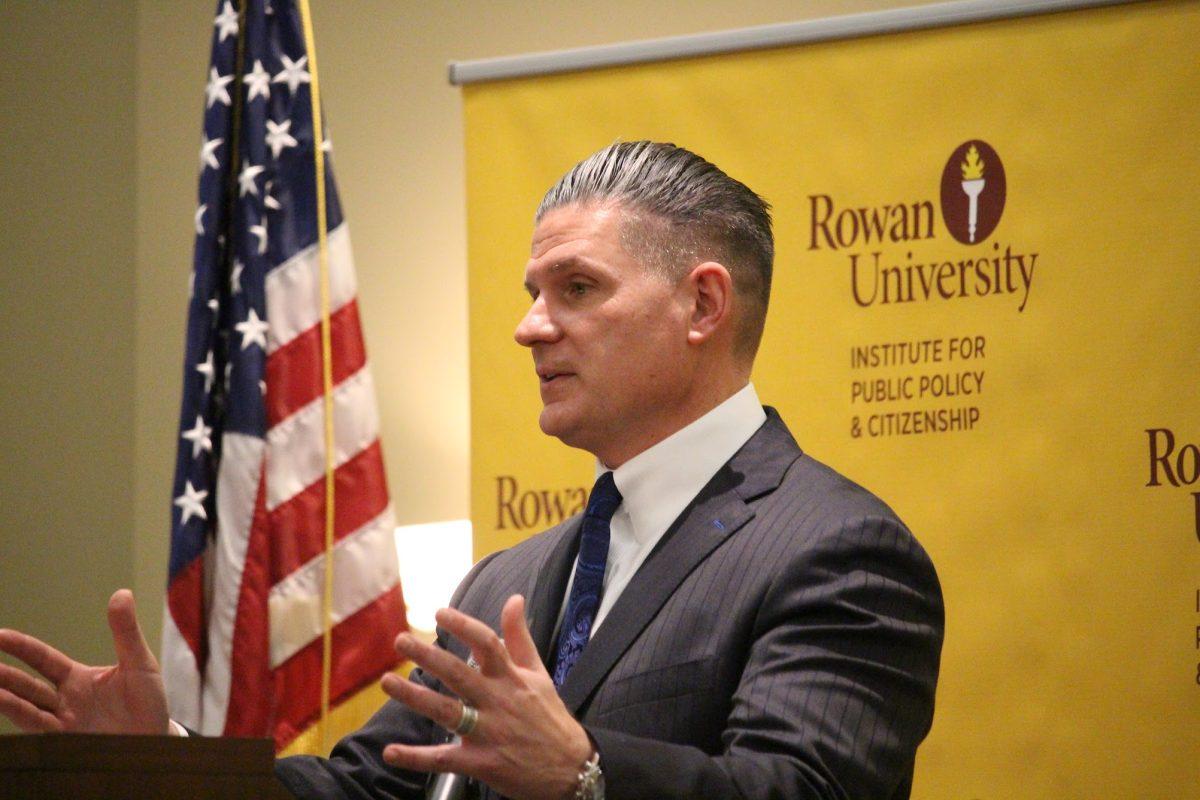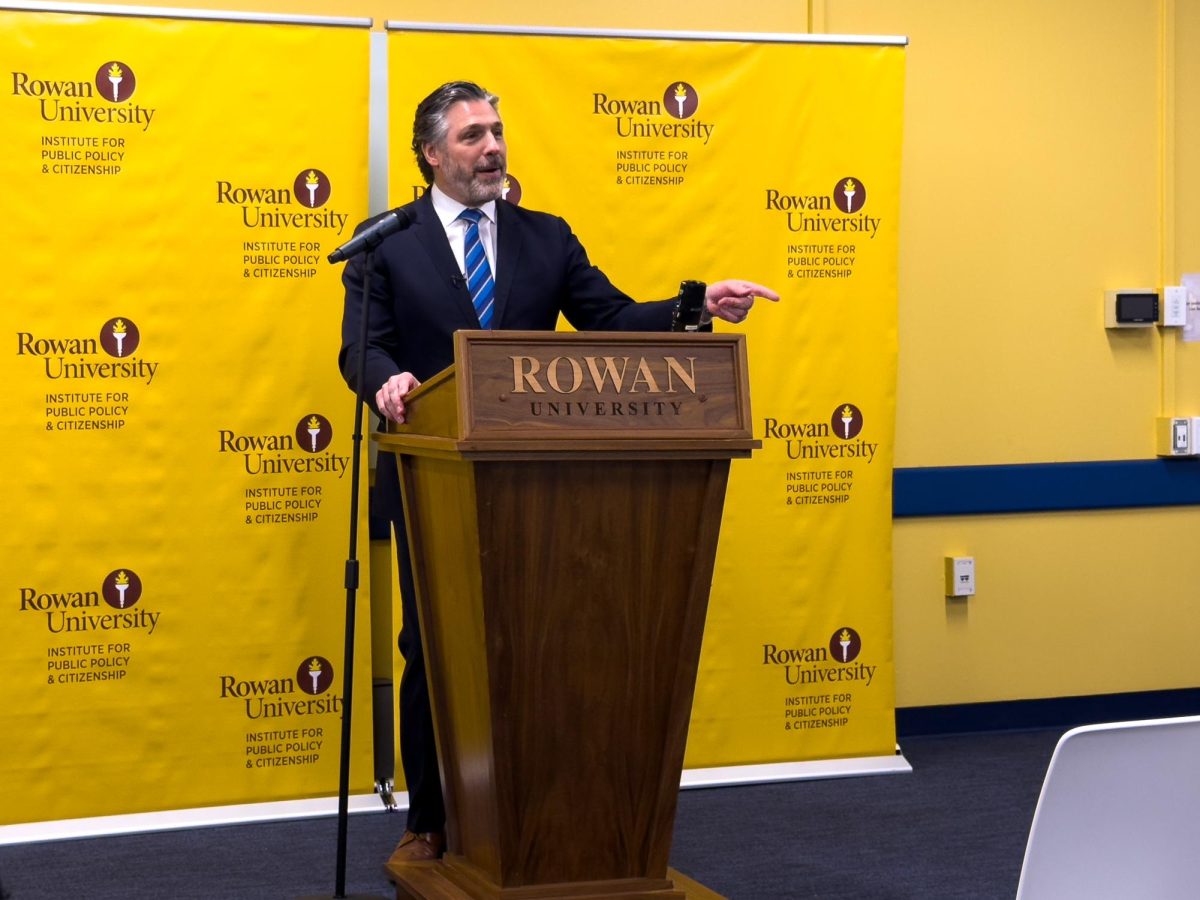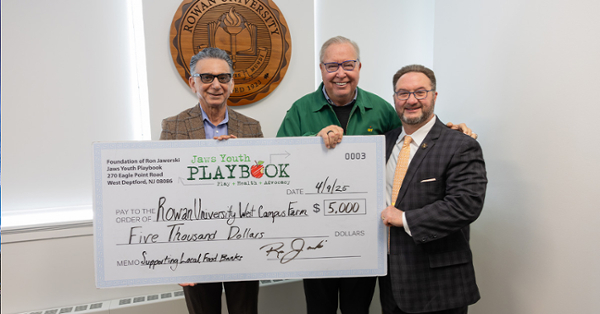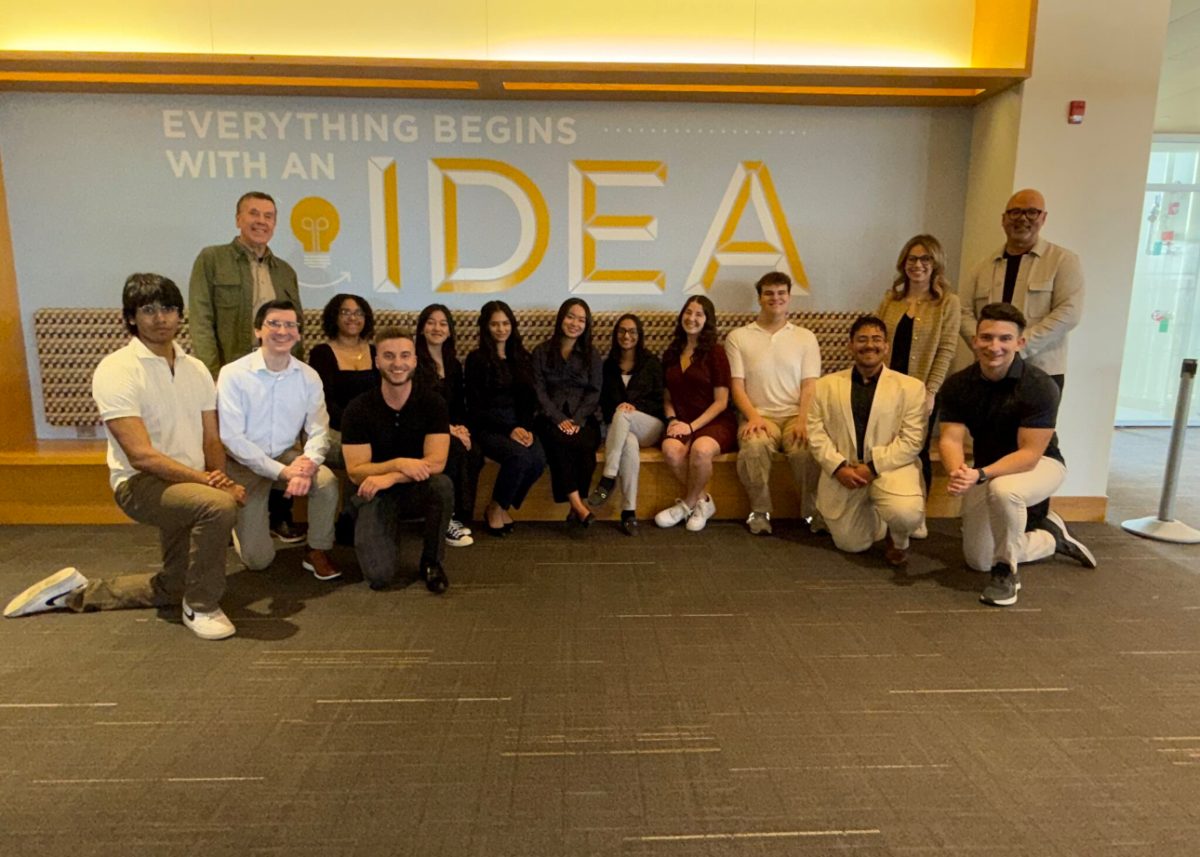New Jersey Assembly Majority Leader Lou Greenwald (D-6) spoke on the redistricting process to roughly 50 attendees, including Rowan University students and the public on Thursday, Feb. 3, in the Eynon Ballroom at an event hosted by the Rowan Institute for Public Policy and Citizenship (RIPPAC).
“The most important issue that’s present today in New Jersey is redistricting,” Greenwald said.
Greenwald opened up about what has been a rather contentious redistricting process, as Republicans have raised recently-dismissed legal challenges to the winning Democrat-drawn congressional map chosen by John E. Wallace, Jr., a retired New Jersey Supreme Court justice who said he chose the Democrats’ map because the last redistricting map was “drawn by the Republicans.”
The chosen congressional map has also been criticized for “unfairly favoring Democrats” as investigated in a recent academic report, which raises eyebrows considering the group that advised Wallace during the redistricting process is being financed by donors with ties to national and state Democrats.
Greenwald seemed to believe that the current makeup of the commission responsible for legislative redistricting— a process separate from and subsequent to congressional redistricting, is not adequate in its regional representation for South Jersey’s roughly 3 million constituents. Especially after former Senate President Steve Sweeney, the only South Jersey representative that was on the commission, was ousted from the position by the state party chairman and replaced with Laura Matos, a Monmouth County resident.
“Ms. Matos doesn’t live in South Jersey,” Greenwald said, “So South Jersey right now does not have a representative representing these districts that knows these communities.”
Democratic State Committee Chairman Leroy Jones believes his appointment of Matos “bring[s] broader, more diverse voices and perspectives” to the commission’s work.
Greenwald considers regional representation “important” in the redistricting process and his apparent gripe with the current commission’s lack of such representation creates an increased potential for conflict between his desired regional priorities and Jones’ demonstrated precedence of ethnic and cultural diversity on the commission. Greenwald says he and others will work through with Jones to “start to raise issues about how do we make sure there is fair representation.”
As recently as Jan. 30, Greenwald reportedly praised Jones for his leadership on the commission and did not mention Sweeney’s removal, according to a “NJ Globe” report. The assembly majority leader was not asked about Sweeney during the event, nor did he discuss how he feels about Sweeney’s removal from the redistricting process.
Greenwald also addressed the future of the proposed and long-stalled Glassboro-Camden Line, something former Sen. Sweeney was a big proponent of.
“I think the future on that is bright,” Greenwald said. “I think part of the $12 billion from federal stimulus the state received could be used for the rail line.”
Greenwald also touched on COVID-19.
“This virus was the most serious healthcare crisis we’ve experienced in the last 100 years, make no mistake about it,” Greenwald said. “This virus is here to stay, but it is manageable.”
He called the vaccine a “medical miracle” and “phenomenon” that saved hundreds of millions of lives and considers it “the last hoorah” of COVID-19, as he expects the current Omicron wave to be the last wave. Greenwald credited both the Trump administration for the vaccine’s rapid creation and the Biden administration for its distribution efforts.
Greenwald shared with the crowd his story of inspiration, which derives from his mother, Maria Barnaby Greenwald, an NJ political trailblazer in her own right who died tragically in a car crash in January of 1995.
She was the first female mayor of Cherry Hill, the first directly-elected mayor under a new form of government, the first female elected to Camden County Board of Chosen Freeholders and was the first female surrogate for the New Jersey Superior Court in Camden County in 1993.
“She was the single greatest role model in my life,” Greenwald said.
The assembly-majority leader’s admiration for his mother resonated with Sarah McClure, a 21-year-old Rowan student and international studies and political science major.
“It’s easy for us to all want a legacy when you’re going into political science,” McClure said. “Assemblyman Greenwald took his mother’s legacy and built it into his own career, and it was really inspiring to see how much he admired the work his mother had done and wanted to champion that into the future.”
Greenwald touched on the Second Amendment and how his intimate experience with meeting Sandy Hook parents, coupled with the 2011 shooting of then-Congresswoman Gabby Giffords, has influenced his position on the topic.
“I have singularly stopped legislation that has come forward for people to try to take guns away because then you lose credibility,” Greenwald said. “Do you need a magazine round with 50 rounds [of ammunition]?”
Freshman political science major Vincent Giasullo, a self-identified Democrat attending Rowan University, said he did not agree with Greenwald’s stance on firearms.
“I don’t believe it’s a gun or magazine problem, it’s a mental health problem,” Giasullo said. “A lot of these guys [involved in firearm violence] are mentally disturbed, it’s a problem that we have and we need more funding.”
Greenwald also remarked on his evolving opinion regarding marijuana legalization. The assembly majority leader, who was initially against legalization efforts, eventually got behind them after a family friend’s son died after using fentanyl-laced marijuana he bought on the black market.
Greenwald said that during the current legislative session, he plans to prioritize “restructur[ing] how we fund local governments” and more broadly, affordability.
Mike Zupko, a 21-year-old senior economics major and RIPPAC associate, had the chance to introduce the assembly majority leader and walked away satisfied with and inspired by the experience.
“[Introducing Greenwald] was a great honor,” Zupko said. “He has some policies that I truly love regarding healthcare and infrastructure, so it’s great to be able to have the opportunity to introduce someone that powerful.”
Greenwald’s final message was a lesson in how to responsibly wield the power Zupko greatly admires.
“There are going to be things that you’re passionate about that drive you to be involved in public service,” Greenwald said. “But don’t close the door to be passionate about things that you never thought of, because those people are going to need you too, and they’re going to need a champion.”
For comments/questions about this story tweet @TheWhitOnline or email [email protected].


























































































































































!["Working with [Dr. Lynch] is always a learning experience for me. She is a treasure,” said Thomas. - Staff Writer / Kacie Scibilia](https://thewhitonline.com/wp-content/uploads/2025/04/choir-1-1200x694.jpg)
















































